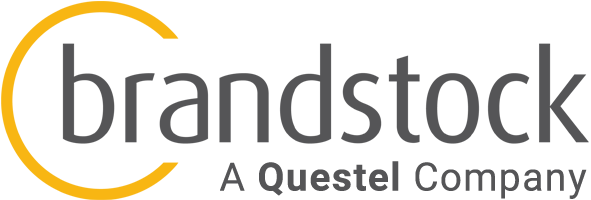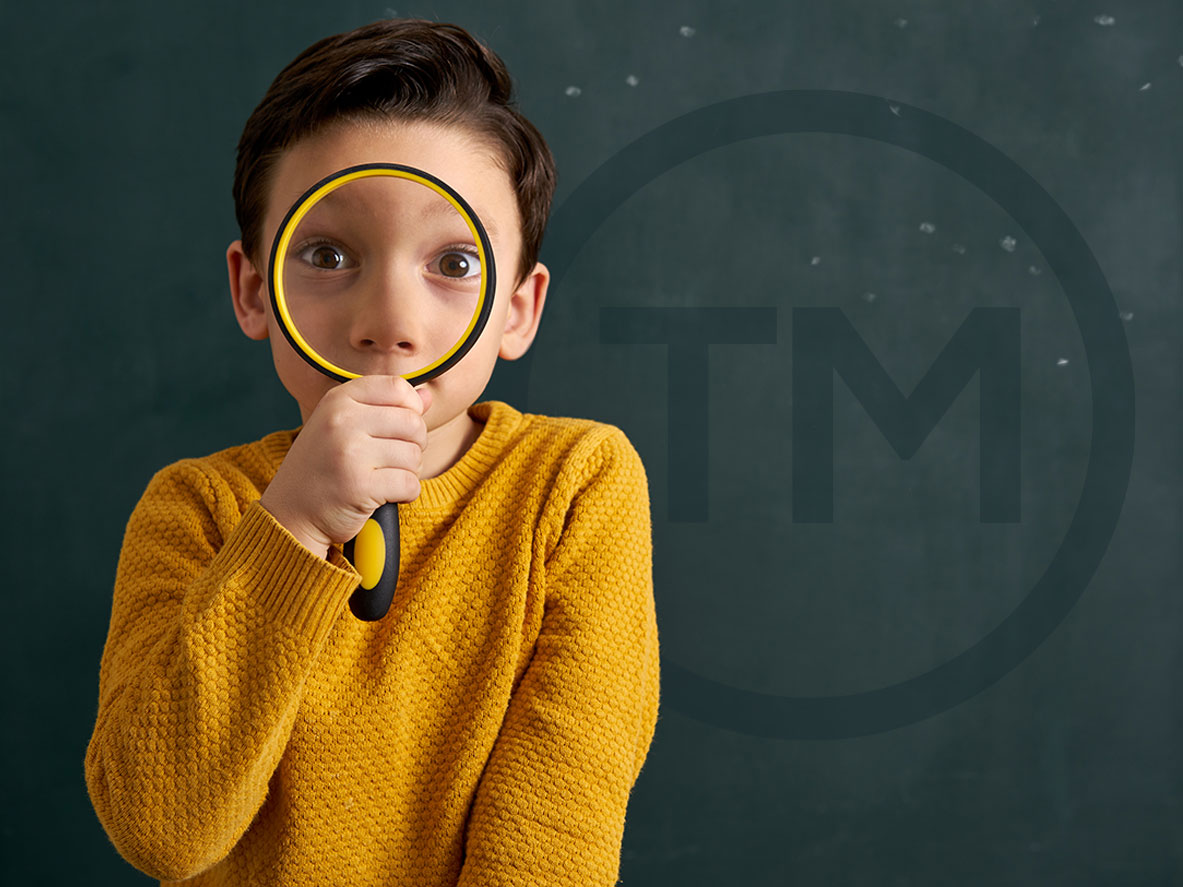A trademark search is a necessary and essential part of owning and registering a new trademark. Many companies choose to put off this task, hearing it can be cumbersome to complete. Fortunately, it doesn’t have to be. Here’s why you should get to work on getting it started as soon as today and not waiting for the risk to build. We’ll also clue you in as to why we recommend hiring a specialist rather than trying to do it by yourself – no matter how much you already know about intellectual property.
Why Conducting a Trademark Search is Important in IP
Choosing to put off a trademark search can have potentially serious ramifications, both concerning the registration of new marks and policing existing marks. Let's first review these risks, so you understand the importance of conducting your trademark searches as soon as the need arises.
Trademark Search Risks
Since a trademark search is a vital aspect of all stages of owning a trademark, the risks associated with not conducting this search can crop up at each stage. In short, the three main risks of not conducting a trademark search properly are:
- The rejection of your registration application for a new mark
If you are looking to register a new mark, a trademark search will check whether there are any competing marks already in existence which may conflict with yours. Failure to properly conduct a trademark search at this stage could mean that you’re left unaware of a significantly similar pre-existing registered trademark, which could spell trouble for your company or client.
- Infringements of your existing mark
Searches are also necessary during the term of any existing registered trademarks. If a trademark search isn't properly conducted with policing your current marks, you could potentially end up infringing when it comes to competing marks. Don't let anything slip through the net.
Letting yourself remain unaware of potentially infringing competing marks will not only diminish your brands' exclusivity but can also significantly affect the financial and commercial success of your brand.
- Potential revocation of an existing mark
Cancellation can also be a consequence of not comprehensively conducting a trademark search. If before registration, a trademark search was improperly conducted or not conducted at all and your mark was registered regardless, you may be liable. It could be revoked if the existence of the earlier pre-existing trademark comes to light.
The risks of a delayed trademark search can arise at any stage during the lifetime of a trademark. This type of search should thus be conducted as soon as possible when you know you'll be needing one. There are different methods as far as conducting a trademark search goes, broken down into two definitive ways – in-house and external searching.
In-House VS External Searching
Using your in-house team to conduct a trademark search when necessary may appear to be cheaper than hiring external professionals; however, this initial cost saving may prove far more costly further down the line.
Internal professionals often lack the niche expertise possessed by external trademark searching service providers, meaning that many searches conducted in-house are likely to be less comprehensive and therefore leave your mark open to risks.
Also, internal teams will often not be employed solely to conduct trademark searches. They are very likely members of your in-house IP department or company employees. Tasking in-house teams with doing a trademark search may also mean that these searches may take longer, as the employees will also have other ongoing tasks.
Thus, not only can outsourcing this task save your business money, but it improves the efficiency of your department, saving time – arguably just as valuable. You don't want to take your people away from their other responsibilities to the company.
When there's the global nature of the IP market to consider, a third-party team can also take into account factors such as variations on spelling, translations and linguistic and phonetic adaptations of search terms, as well as cultural differences. This thoroughness is the only real way to ensure that your trademark search is comprehensively optimized. Unfortunately, internal legal departments are unlikely to have a full awareness of these critical factors.
Regardless of whether you choose to use internal or external professionals to conduct your trademark search, remember to complete them regularly and promptly – don't put off until tomorrow something to do right away.
We mentioned that there are ways of saving both time and money during this process. Let's visit some techniques that an external team of specialists in this area of IP will achieve when doing a trademark search.
How Trying to Do a Trademark Search Online Could be Costing You
Since a trademark search is so essential to a business, it only makes sense that numerous online databases of registered trademarks have cropped up. These days, with businesses being inundated with online resources for the searches, it can be challenging to determine where best to conduct your search – or even whether this should be done online at all.
Amongst the plethora of online databases, businesses can often feel lost. For easier categorization, these are the two different groups of databases:
- National IP databases
The majority of territories have their national IP database run by their respective IP office, containing information on all the trademarks registered within that territory. These databases are free to use and are often the first port of call for businesses looking to conduct a trademark search.
- Commercial databases
Alternatively, some commercial services offer online databases where you can carry out a trademark search. These databases may not always be free to use, but they do tend to provide a broader range of services than national databases. In addition to offering searches by name or keyword, by trademark number, by image or by owner (as national databases do), these databases may also provide things like availability reports on your mark.
However, businesses often encounter issues with using these tools to their full potential and end up making mistakes – whether in the search terms used, the database chosen, or in reading the results correctly, it’s common for businesses to slip up when conducting trademark searches.
It is for this reason that external trademark search services have become increasingly popular. Outsourcing your searches to external service providers creates an optimal alternative to conducting these searches yourself, saving you both time and money (not to mention responsibility, or liability).
Many businesses now choose to outsource their searches to external service providers to combat wasting time on trademark searches. Not only because it's likely the search itself will be completed more quickly – it also means you have time to focus on other important matters.
In a similar vein, outsourcing your trademark searches to external providers can also save you money, as you've been hearing. Conducting these searches yourself, although ostensibly cheaper, could end up costing you in a far greater way.
The consequences of the three main risks outlined earlier would likely be accompanied by significant financial losses. Hiring external providers to conduct these searches enables you to be confident and not stressed about something going wrong since the external expert you select will likely have years of specialized experience.
Concerning the international nature of IP, external providers differ from your internal legal department. An external provider will either have external counsel from different territories or they will have an international network and possess an awareness of the impact that different regions may have on your trademark search. This awareness is vital in the ever-expanding IP market.
Regardless of the method, you chose when beginning the process. You'll want to be sure you have the right tools at your disposal for your trademark research.
Having the Right Tools to Facilitate Your Trademark Search Properly
When you're looking to run a trademark search before registering a new mark, there are some things you'll want to keep in mind as far as resources. After all, proper research must be done to make sure to complete everything thoroughly and correctly.
First, it's essential to determine which databases you'll be using to conduct your trademark search as we saw in a previous chapter. You can determine to choose a database by many factors such as the territory or territories of registration, the kind of marks you're searching for, and what results you expect to achieve from the search.
Next, aside from the available database options, another important resource when conducting a trademark search is people – hiring the right people to perform your trademark search can have a significant impact on the search results and, consequently, the success of your trademark.
Although many businesses have an internal legal department, again, few have one large enough to be able to exercise a full-scale trademark search without it taking a toll on the overall work output of the department. If you’re looking to conduct a trademark search yourself, it’s imperative that you have enough professionals within your legal department to ensure things don’t get too backed up. Ideally, it’s also best to ensure that your team is international.
Very few businesses, however, have such a large team at hand that they can cover the human resources aspect as well as the international knowledge base. Remember, although it is possible for a small in-house legal department to conduct a trademark search, searches conducted by global service providers are far more comprehensive.
Additionally, you should make sure that you have alternative proposed trademarks ready in case your initial proposal isn't available. The vast majority of businesses find that their first choice for a trademark is not the most viable one.
Let's go over more specifically the potential danger that lurks when an internal team tries to do everything themselves. It's not impossible, but there have been many times where something has happened, and a company's counsel wished that they had brought on the additional help of people with more skills, capacity for time, and beyond – and we would all do well to learn from the past.
Don’t DIY: Trademark Searches Are Too Important Not to Enlist an Expert
Many businesses are still choosing to go about the trademark search process on their own, intending to make a cost saving. However, the costs associated with the initial conducting of trademark searches yourself are only the tip of the iceberg when it comes to what's involved. Higher financial costs arise because these searches are more likely to be conducted improperly – even if you choose to use the commercial databases we talked about earlier.
Trademark searching is an art requiring extensive experience and knowledge – choosing to do these yourself can prove incredibly costly if your chosen mark is refused registration. By the time you decide to conduct a trademark search, you should already have narrowed down your potential new mark – having reached this point alone will have taken a significant amount of time and resources.
However, an improperly conducted trademark search may mean that you go ahead and apply to register your mark after confusingly similar marks slipped through the cracks in your search. The costs of both researching and filing to register your trademark will have been wasted – as your mark would be refused registration instantly.
These costs are not only limited to the time and money spent on the development of your mark and the payment of registration fees but also include the fees paid to your IP agents during this process. Such a significant loss could mean that your budget no longer allows for the registration of a new mark, thereby losing your business and a critical IP asset.
Furthermore, the costs of conducting a trademark search yourself are not merely limited to financial losses. These costs can extend to the exclusivity and value of your mark.
If your self-conducted trademark search does not flag up any confusingly similar marks, then you may go ahead with registration – despite the possibility of a more extensive search having shown that proposed trademark to be not the best choice (either due to the territory of proposed registration or other existing brands).
It is for this reason that expediting your trademark search by assigning it to external service providers can significantly decrease the overall costs involved with conducting searches – both financially and in terms of your brands’ success.
Of course, trademark searching services are not free of charge. However, the fees required for professionals to conduct a thorough investigation into the suitability and availability of your proposed mark are nominal in comparison to the potential costs of doing this yourself. Let's dive a bit deeper into the aspect of a trademark search that we referred to as an "art". Not everyone can do it at the same caliber as a specialist.
Trademark Search: The Art of True Deep Screening
While trademark lawyers rarely share all the same opinions, all would agree that launching a new product or service without first investigating prior rights poses a risk — not only a financial disaster but also a professional embarrassment.
Types of Searches
The internet radically changed the dimensions of trademark law. The digitization of the trademark world dramatically transformed the trademark search process, making it a less obscure and mysterious discipline. Today, with sophisticated algorithms, powerful databases, and search engines in play, industry practice has evolved that involves the use of two main types of search:
- “Preliminary” search, also known as “pre-screening,” or “knockout” search
The primary purpose of a pre-screening search is to rule out names which are more obviously unavailable. It does not provide a definite opinion on the registrability of the remaining candidates or freedom to operate. It identifies apparent conflicts at an early stage and provides an explicit "no" to proposed names, but never an unequivocal "yes."
- “Full availability” search
The more comprehensive and costly full availability search is generally conducted in each jurisdiction of interest by local counsel with expertise in national rules, regulations and case law. These local experts identify similar prior trademarks, providing formal advice on registrability on absolute grounds as well as relative grounds for refusal.
Despite being comprehensive in terms of legally evaluating registrability, an in-house team is left to consolidate all the individual country reports as well as to conduct further investigations to have a complete understanding of the business and legal risks of using a specific name.
A Case to Consider
Additional checks are needed to understand whether, how, and by whom prior and potentially conflicting marks have been used to fully assess the associated business risks.
Take Nestlé, for instance. They are the largest food and beverage company in the world, with more than 340,000 employees in 197 countries, and a portfolio of more than 92,000 trademarks. In 2012, their senior legal IP counsel saw an opportunity to reconsider the current approach to search and clearance.
In addition to being expensive, traditional search reports never adequately addressed the availability of a name for use, including the potential legal risks linked to that specific use, thereby preventing a comprehensive legal and commercial risk assessment. He concluded that new business pressures demanded a new approach to searching.
So Nestlé gave the challenge to another counsel, who seized the opportunity to create something innovative. Her first task was to establish precisely what was needed to encompass the risks involved, thereby defining business risk entirely and what it means in today's market.
She quickly realized that by combining a traditional pre-screening search with data obtained via internet searches and use of specific database services, it would be possible to compile the results of legal and business risk analysis into a single report, with a single overall opinion.
The report includes the relevant search results along with indicators that highlight risks, opportunities, and recommendations to overcome obstacles. All prior rights are included by mark rather than jurisdiction, which is a departure from traditional searching methods.
Diving Deeper
Inspired by the Nestlé model, Brandstock has developed what we call ‘Deep Screening.’ The name reflects the fact that this search offers the speed of pre-screening with the depth of commercial analysis that produces meaningful insight into business risk.
Deep Screening brings together legal and commercial analysis, providing rapid profiling of business risk, which ultimately enables better decision-making and reduces costs. Clients can now make decisions based on a combination of both business and legal information that is up-to-date, transparent, consistent and complete.
This new approach, which we believe has taken trademark search to an entirely new level of sophistication and relevance, is made possible only by working closely with each client and using the best suppliers.
As Nestlé stated recently, "Each search strategy needs to be tailored to fit the situation and requires making choices about the 'what, when, where, and how.' Advising clients of the real-world risks in adopting a mark involves a multi-stage process including legal analysis, some detective work, intuition, judgment and a perfect sense of how trademark disputes play out in a particular market."
A Deep Screening search begins with identifying identical marks as well as marks that are visually, phonetically or semantically similar; linguistic and case law research is also undertaken. The second stage involves extensive online searches to detect instances of use that might have an impact on the freedom to operate in countries where such use could give rise to conflict.
Once a potential conflict has been identified, the focus is on the specific business and information that will help to evaluate the likelihood of that business taking action.
Following expert review and ranking of the risk of each mark, the full search results and derivative reports are then available through Brandstock’s online platform, giving clients the ability to take further action as required through our interface.
Using Deep Screening has the benefit of reducing the spend on full availability searching, as the number of cases requiring such analysis is significantly reduced. The results derived from Deep Screening make it possible to focus attention only on those cases where full availability search adds real value and is therefore needed.
Achieving the best outcomes requires constant collaboration between marketing and legal functions to gain a better feel for marketplace behavior. This cooperation can improve through specific training by Brandstock on how to create a brand name to provide a better understanding of how to build a strong brand, while "playing it safe," from a legal point of view.
You’re Now Prepared to Make Smart Choices with Your Trademark Search
Ultimately, the centralization of creating names and consolidating searching and clearing processes delivers added value. Such a holistic approach ensures that companies can meet today's business demands faster and more efficiently.
We urge you to download our FREE guide to learn everything else you need to know about performing a trademark search for your company or client. Why not save time, money, and cut down on unnecessary stress for everyone involved in IP at your company. You’re already so busy with everything else, you may as well let us take a ton of the work – and the pressure that comes with it – off your hands.
















